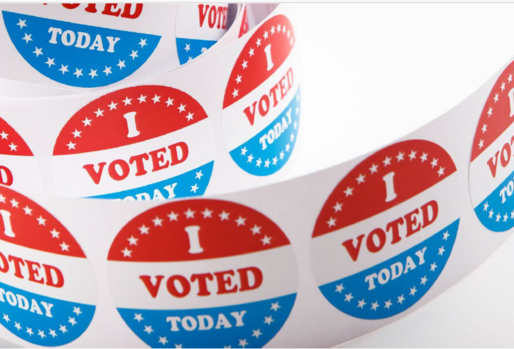
New Report Uncovers Flaws Behind Databases Used by Mass Voter Challengers
A new white paper documents the flaws in data methodologies used by mass voter challengers that could put voters without stable housing at risk of having their registrations questioned or canceled.

Today, All Voting is Local, Dēmos, the Lawyers’ Committee for Civil Rights Under Law, and Voices Vote Now published a white paper documenting in detail the flaws in the data and methodologies used by third party data programs, such as EagleAI and IV3, which have been used by individuals, organizations, and networks as the basis for mass voter qualification challenges that risk removing eligible voters en masse from state voter rolls across the country.
This new analysis comes as anti-voter activists engage in efforts to target and challenge the eligibility of thousands of registered voters...
This new analysis comes as anti-voter activists—many of whom continue to espouse debunked voter fraud conspiracy theories—engage in efforts to target and challenge the eligibility of thousands of registered voters using third-party data programs such as EagleAI and IV3. These programs misuse and misrepresent data obtained from the United States Postal Service and other sources to target voters for removal in an attempt to circumvent normal list maintenance procedures. This puts eligible voters from marginalized communities—in particular, those who lack traditional or long-term housing, such as students who live in dormitories, nursing home residents, unhoused and housing-insecure people, military voters, and renters—at heightened risk of having their voter registrations questioned and potentially canceled.
This report highlights these flaws, cautions election officials against using these lists as part of their list maintenance procedures in order to ensure they do not remove eligible voters from the rolls, and encourages voters to check their registration status and seek assistance if they are facing challenge to their voter qualification, including by calling or texting the nonpartisan Election Protection 866-OUR-VOTE hotline.
See below for quotes from representatives of the organizations involved:
All Voting is Local:
"Our democracy is strongest when every voter is heard, but flawed third-party data programs are threatening voter rights on an epic scale,” said Nicholas Martinez, Executive Vice President of Data and Research at All Voting is Local. “Our research has confirmed that these systems are disproportionately targeting vulnerable groups who already face barriers to the ballot. Election officials must approach these challenges to a voter’s eligibility with caution, and voters need to stay vigilant."
Voices Vote Now:
“We are alarmed at attempts to suppress legally valid votes utilizing questionable data procedures,” said Michael Agosta, Managing Director at Voices Vote Now.
Dēmos:
“The right to vote belongs to everyone,” said Roni Druks, Senior Counsel at Dēmos. “But efforts by some groups and individuals to remove voters from state voter rolls using faulty data threatens this fundamental right. Our report raises concerns that those caught in the middle will disproportionately be renters, seniors, students, and unhoused people. Voters’ individual circumstances should not stand in the way of their right to vote.”
Lawyers’ Committee for Civil Rights Under Law:
“Voter qualification challenges have always been used as a tool to disenfranchise Black voters and other voters of color,” said Ryan Snow, counsel with the Voting Rights Project of the Lawyers’ Committee for Civil Rights Under Law. “Election officials should not trust the bad data and suspect methodologies used by anti-voter activists who request these mass purges, and this report helps explain why.”
###
All Voting is Local (All Voting) is a 501(c)(3), nonpartisan, multi-state organization that fights against state and local voting policies that silence Americans’ voices, particularly for Black, Brown, Native American, and other historically marginalized communities — not just in election years, but every year. We were founded on the principle that the problems people face when trying to vote are solvable if state and local decision-makers are accountable to the communities they serve. All Voting is committed to working with our partners to advance fair, inclusive rules on voter registration, remove barriers that make it more difficult for people to vote, and ensure every vote counts. All Voting is on the ground in eight states: Arizona, Florida, Georgia, Michigan, Nevada, Ohio, Pennsylvania, and Wisconsin. Within these states, we are active in more than 60 counties that are home to over 21 million people of color. During the 2022 cycle, All Voting programs expanded access for more than 635,000 voters. Learn more at www.AllVotingisLocal.org
Dēmos is a non-profit public policy organization working to build a just, inclusive, multiracial democracy and economy. We work hand in hand to build power with and for Black and brown communities, forging strategic alliances with grassroots and state-based organizations.
The Lawyers’ Committee for Civil Rights Under Law is a nonpartisan, nonprofit organization, formed in 1963 at the request of President John F. Kennedy to mobilize the nation’s leading lawyers as agents for change in the Civil Rights Movement. Today, the Lawyers’ Committee uses legal advocacy to achieve racial justice, fighting inside and outside the courts to ensure that Black people and other people of color have the voice, opportunity, and power to make the promises of our democracy real. The Lawyers’ Committee implements its mission and objectives by marshaling the pro bono resources of the bar for litigation, public policy, advocacy and other forms of service by lawyers to the cause of civil rights. The Lawyers’ Committee co-leads the national nonpartisan Election Protection Hotline (866) OUR-VOTE.
Voices Vote Now is a Washington, D.C.-based data and analytics consulting group with several decades of experience in electoral activities and voter file data.


